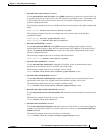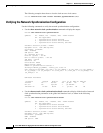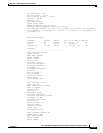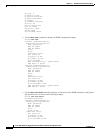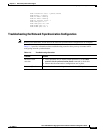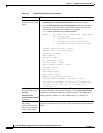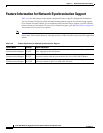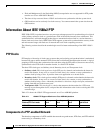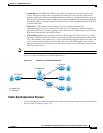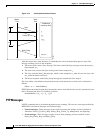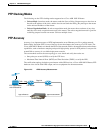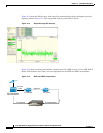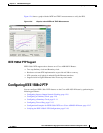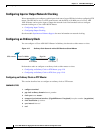
CHAPTER
12-1
Cisco ASR 1000 Series Aggregation Services Routers Software Configuration Guide
OL-16506-17
12
IEEE 1588v2 PTP Support
IEEE 1588v2 Precision Time Protocol (PTP) is a packet-based two-way message exchange protocol for
synchronizing clocks between nodes in a network, thereby enabling an accurate time distribution over a
network.This document explains how to configure IEEE 1588v2 PTP on the Cisco ASR 1002-X Routers.
Finding Feature Information
Your software release might not support all the features documented in this module. For the latest feature
information and caveats, see the release notes for your platform and software release. To find information
about the features documented in this module, and to see a list of the releases in which each feature is
supported, see the “Feature Information for IEEE 1588v2 PTP Support” section on page 12-21.
Use Cisco Feature Navigator to find information about platform support and Cisco software image
support. To access Cisco Feature Navigator, go to http://www.cisco.com/go/cfn. An account on
Cisco.com is not required.
Contents
This guide covers the following topics:
• Restrictions for IEEE 1588v2 PTP, page 12-1
• Information About IEEE 1588v2 PTP, page 12-2
• Configuring IEEE 1588v2 PTP, page 12-7
• Additional References, page 12-19
• Feature Information for IEEE 1588v2 PTP Support, page 12-21
Restrictions for IEEE 1588v2 PTP
These are the restrictions for configuring IEEE 1588v2 PTP:
• Supports IPv4 unicast mode, but not multicast mode.
• Does not support Dot1q, Q-in-Q, and port-channel interfaces.
• PTP master supports only a maximum of 32 PTP slaves.
• PTP boundary clock is supported only in unicast negotiation mode.



